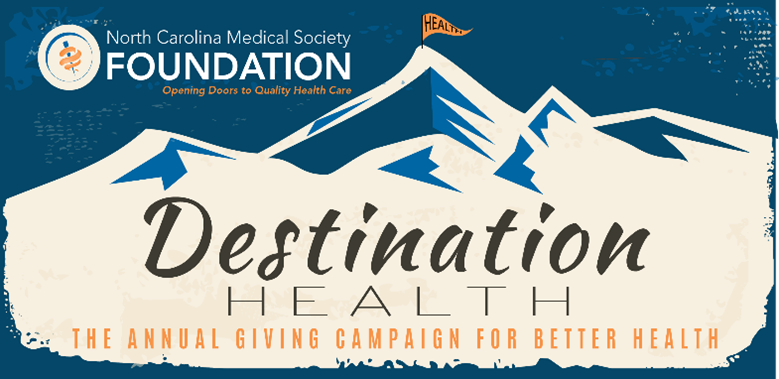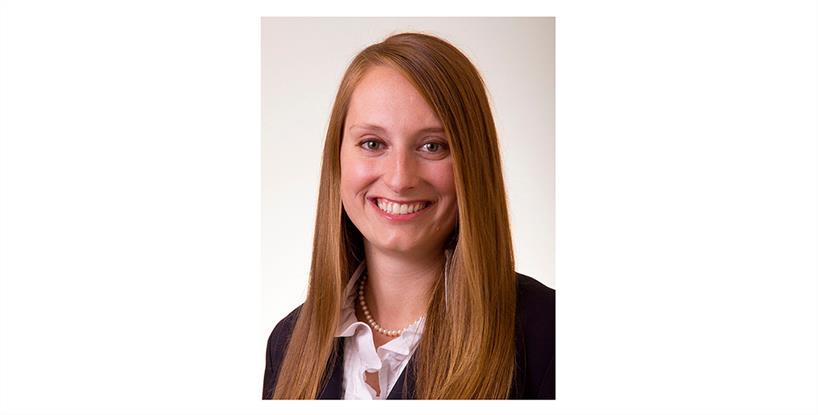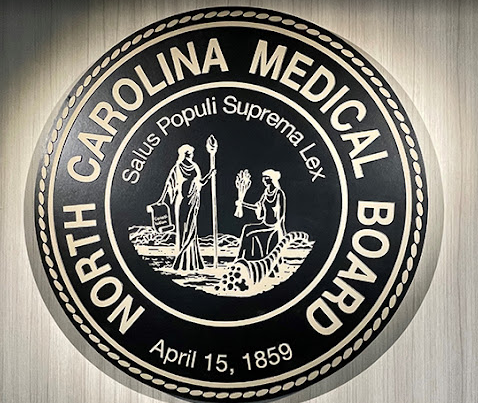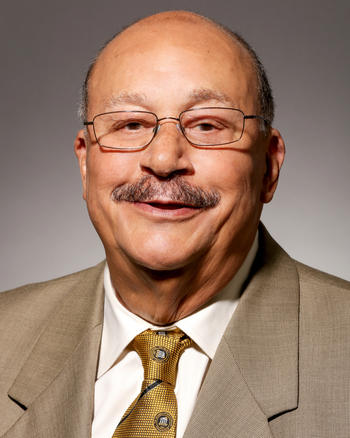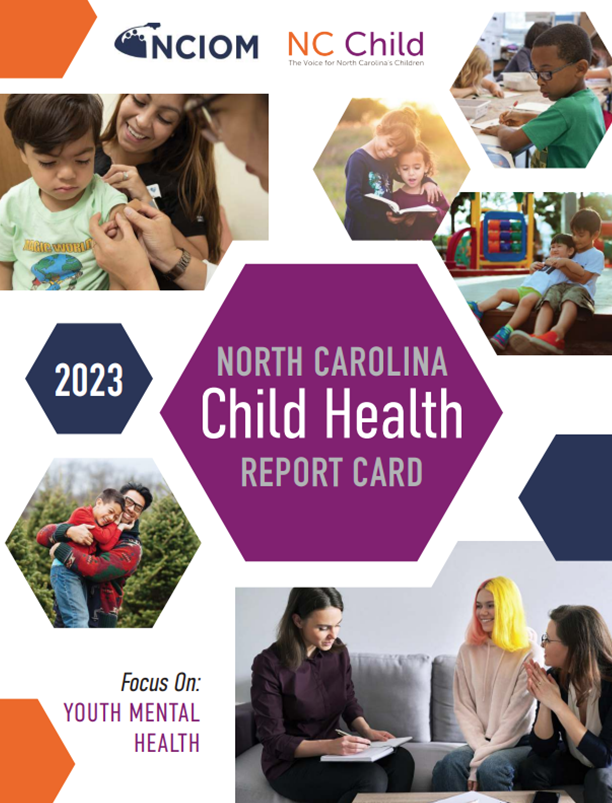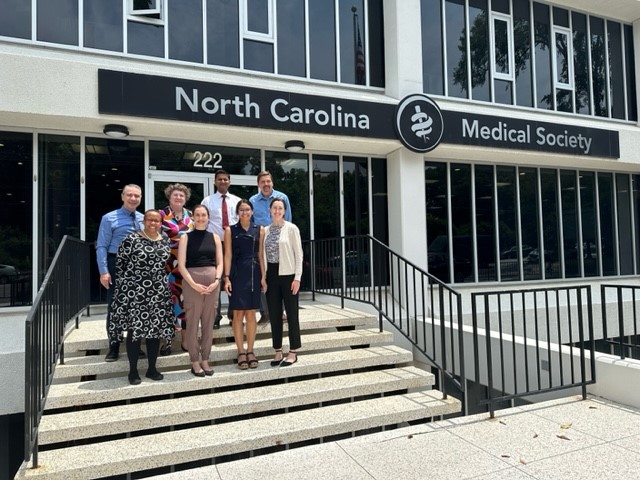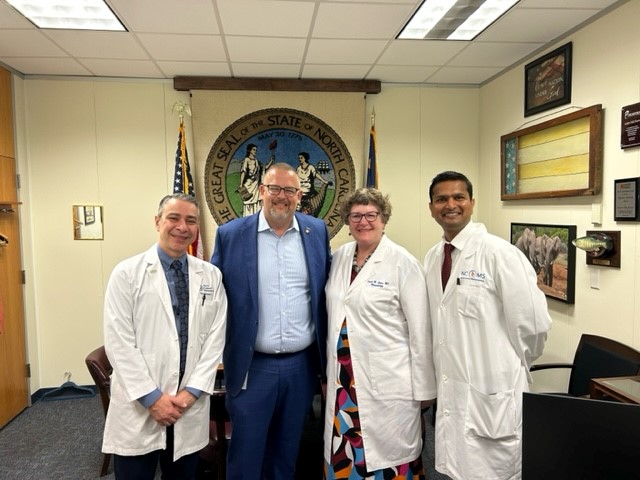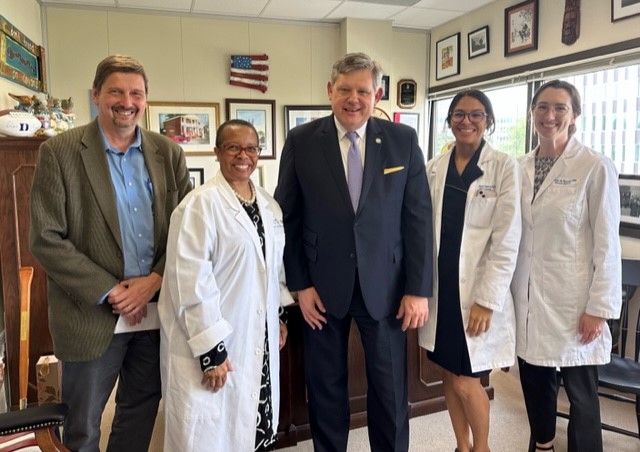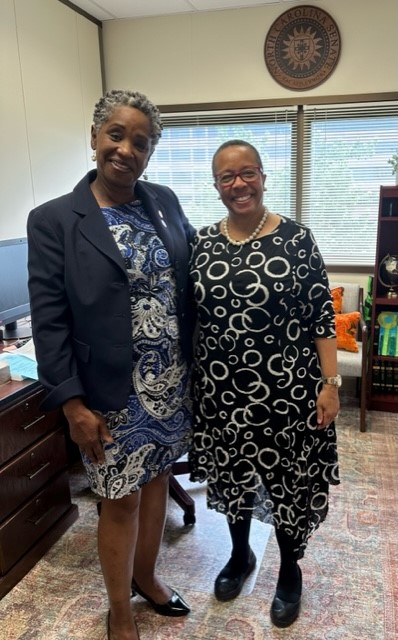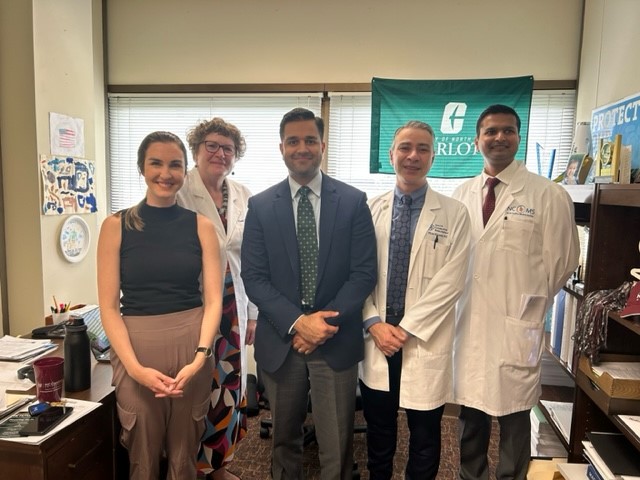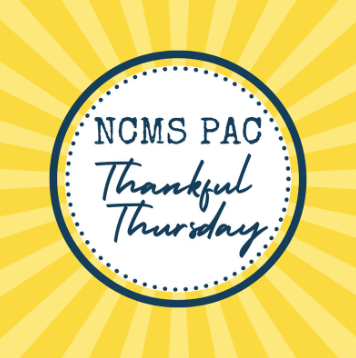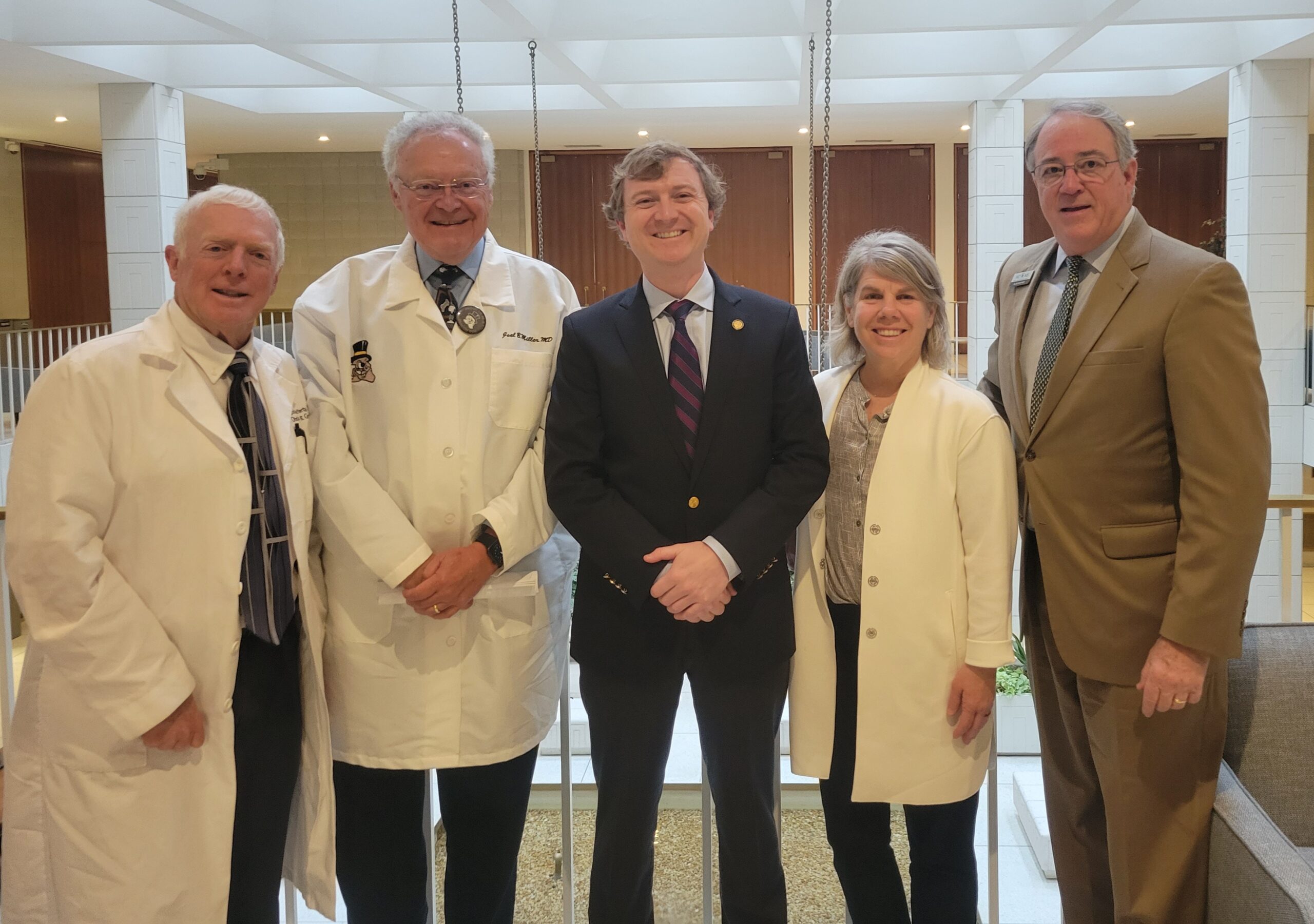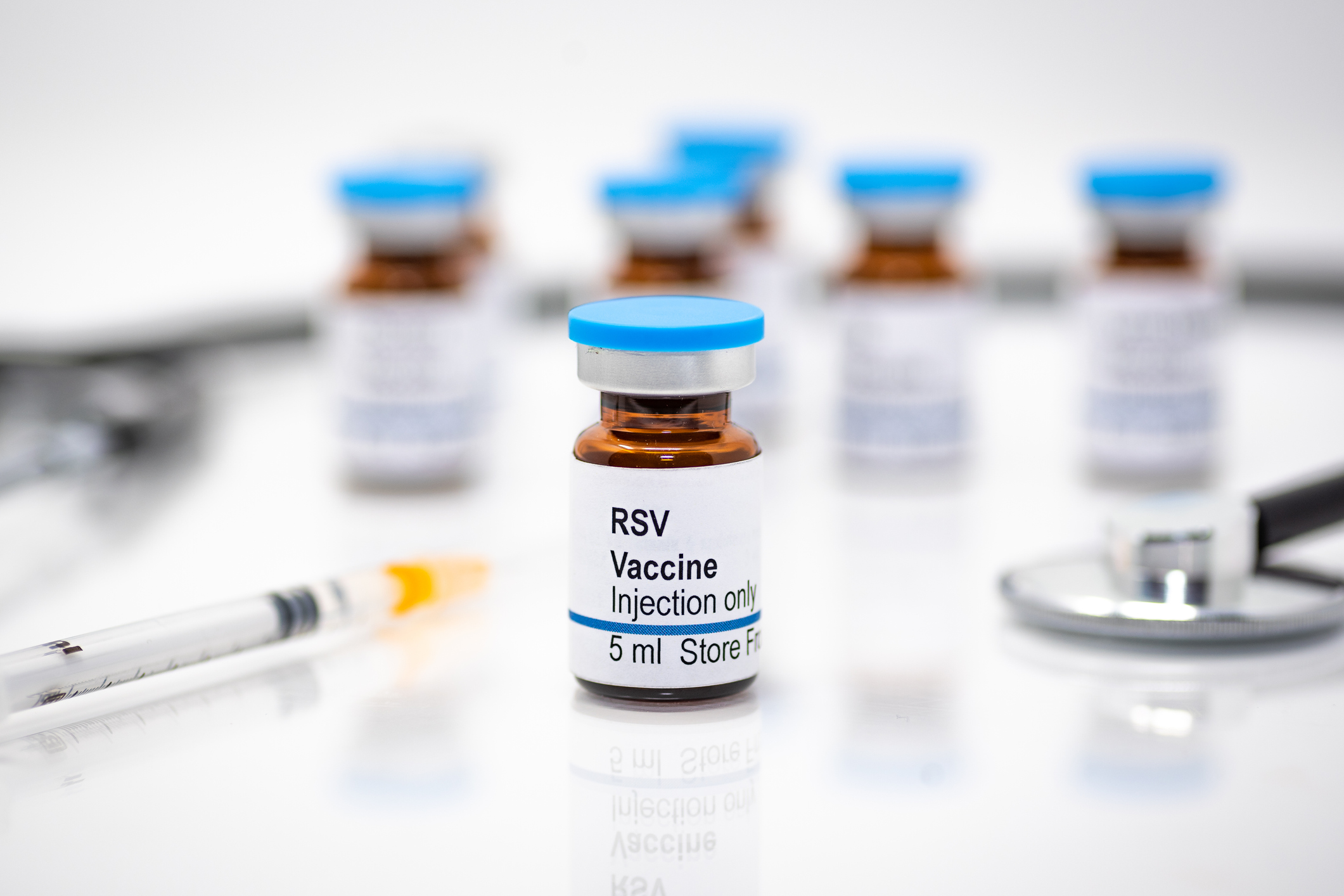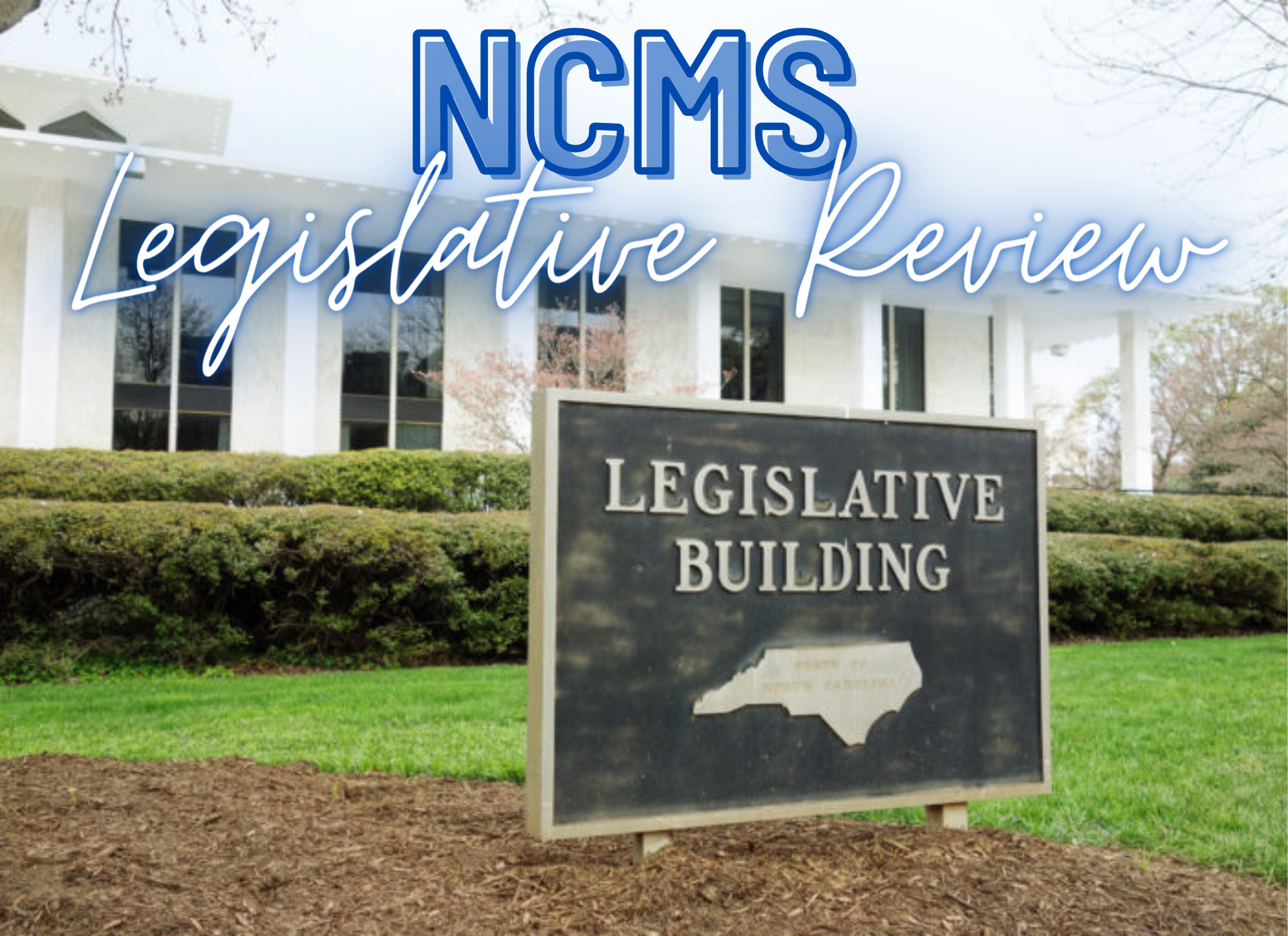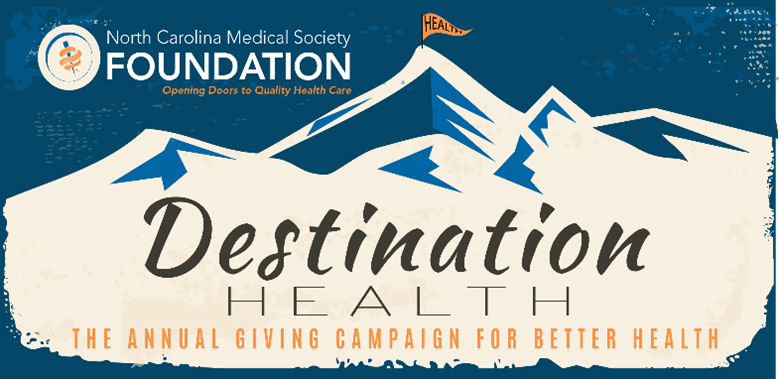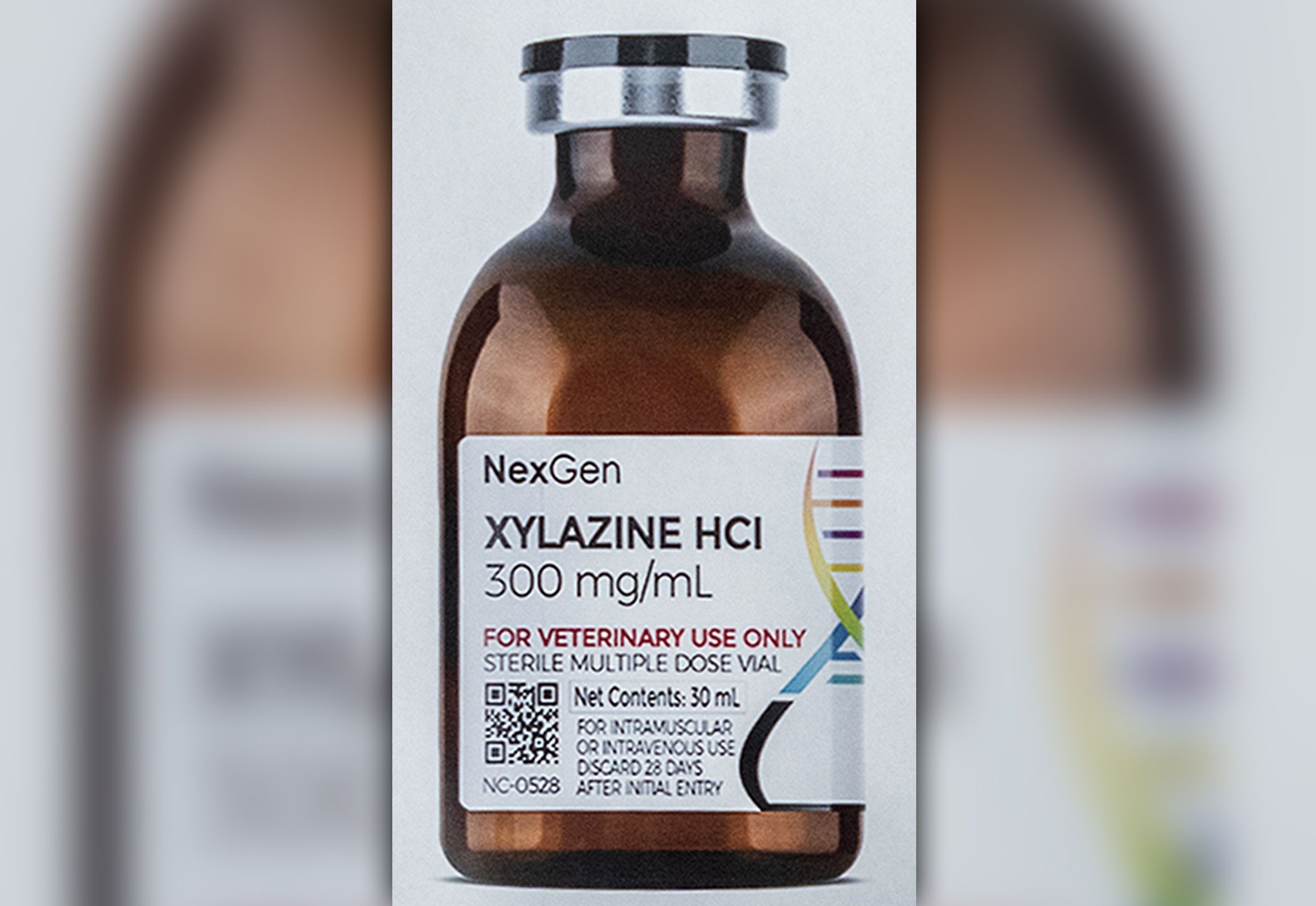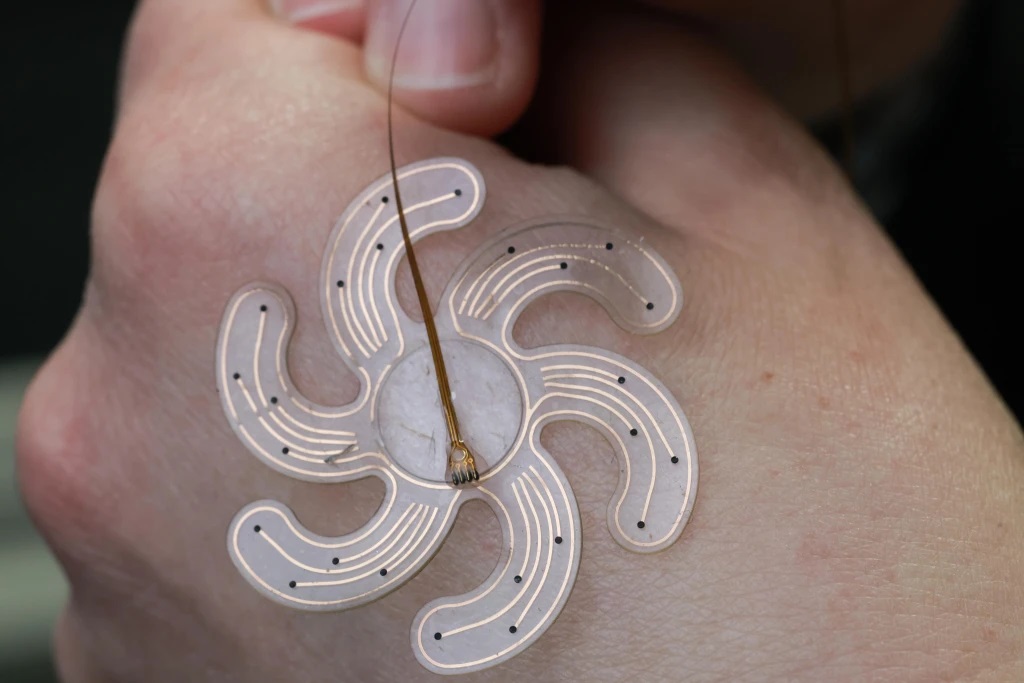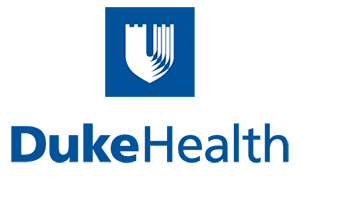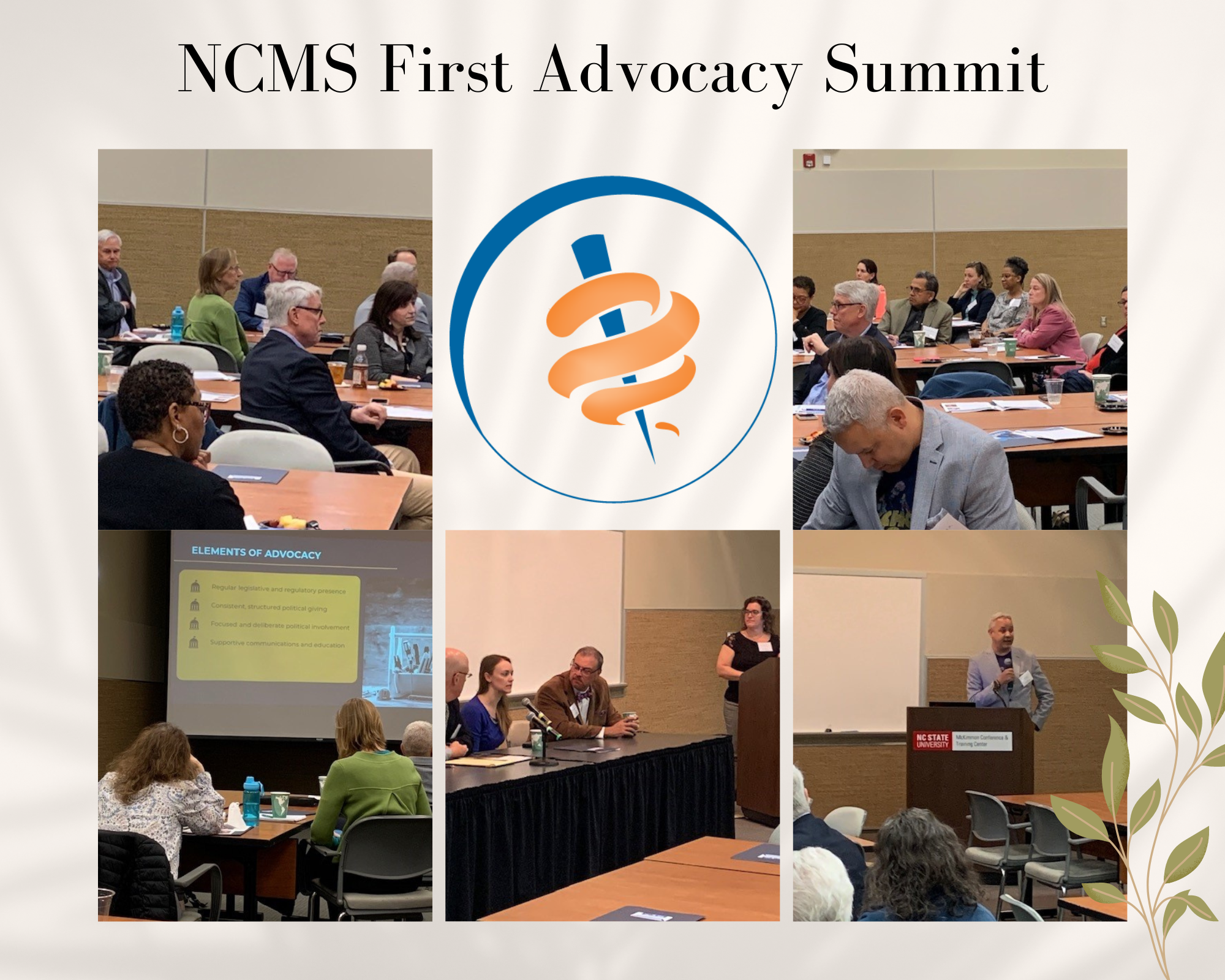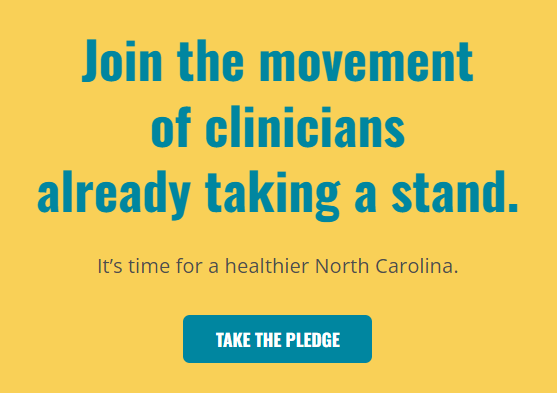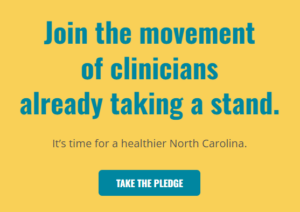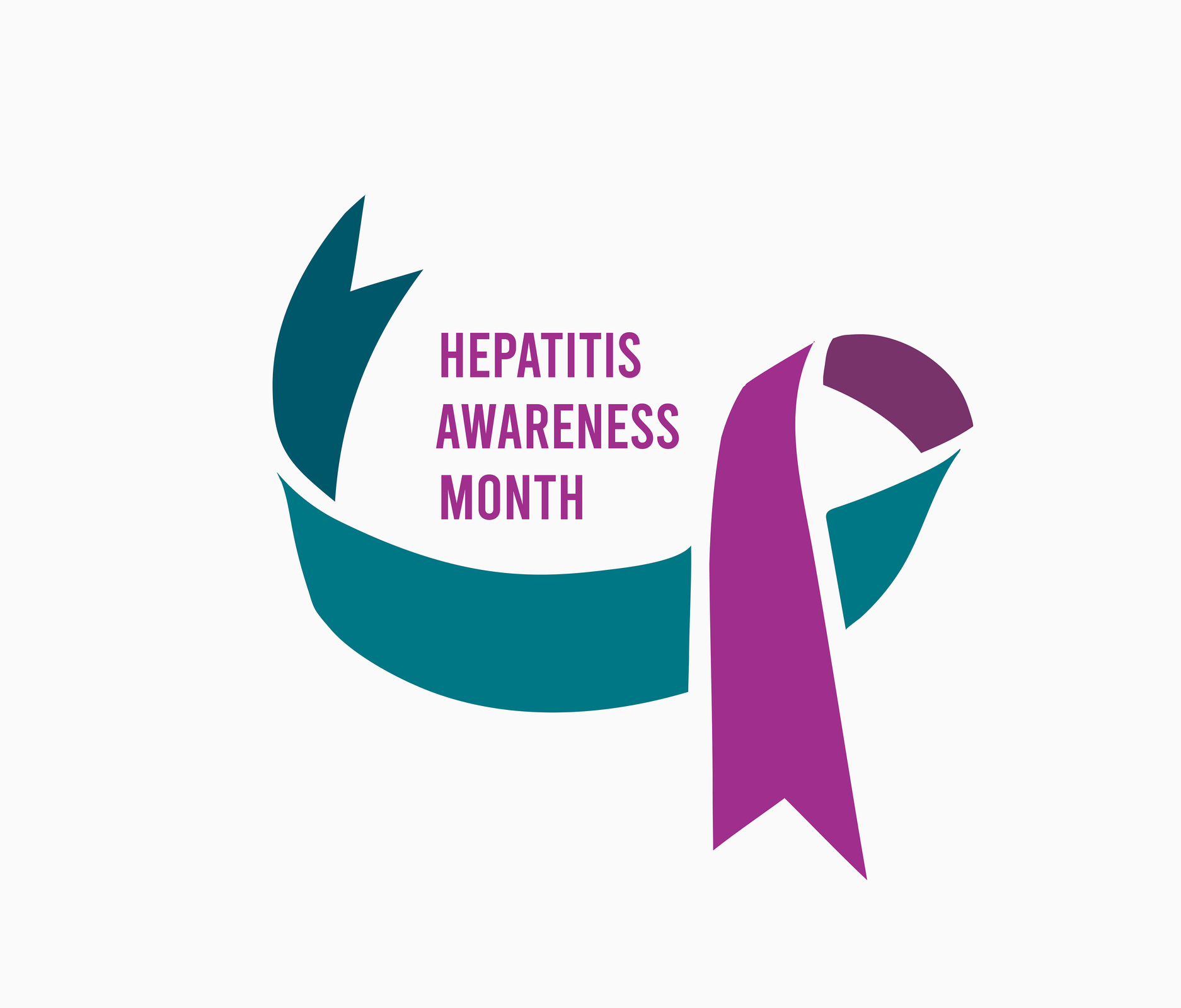Hormone Patches for Menopause Symptoms May Have Lower Blood Pressure Risk Than Pills

New research suggests patches or creams may be safer for women who use hormone therapy to relieve hot flashes and other menopause symptoms than pills.
The University of Calgary team examined health records of more than 112,000 women ages 45 and older who filled prescriptions for at least six months’ worth of estrogen-only hormone treatment between 2008 and 2019. They tracked which women went on to develop high blood pressure at least a year after starting treatment.
While the differences weren’t huge, women who took estrogen pills had a 14% higher risk of developing hypertension compared to those using skin patches or creams, the researchers reported.
Read full article here.
Former NCMS Director of Health System Advocacy Kristen Spaduzzi Joins CCHN

Former NCMS Director of Health System Advocacy Kristen Spaduzzi has joined NCMS partner Carolina Complete Health Network (CCHN) as Director, Value-Based Programs. This is an exciting opportunity for Kristen and the NCMS, as she carries forward her NCMS experience to the Medicaid network.
Kristen joined NCMS in April 2017. She was integral in helping practices navigate issues with payers and to develop their business models to embrace value-based care.
Kristen, thank you for being a resource for practices and for increasing NCMS value to members!
Send Kristen your well wishes in the comments.
New Solution to Medicaid FQHC Taxonomy Site Enrollment/Re-Verification Problems

The North Carolina Community Health Center Association (NCCHCA) reported some Federally Qualified Health Center (FQHC) sites were being suspended from Medicaid or losing their FQHC taxonomy based on how Medicaid was verifying Medicare participation by the FQHC. This disproportionately affected FQHC sites which do not typically enroll with Medicare (e.g., pharmacy, dental, and pediatric practices). Fortunately, NCCHCA and Medicaid have worked together to identify a solution.
Effective immediately, when verifying an FQHC’s participation in Medicare as a prerequisite for Medicaid enrollment or re-enrollment of a practice site under the FQHC taxonomy, NC Medicaid’s vendor GDIT will verify that an FQHC site meets the Medicare participation requirement if any site under the same FQHC organizational name and tax identification number is also enrolled in Medicare.
In effect, this this will allow confirmation based on the “parent” organization, without requiring that “child” sites or those typically serving non-Medicare populations or services to enroll in Medicare. This applies to reverification of existing FQHC sites as well as existing FQHC organizations adding new sites and locations.
Duke Cancer Center: Black Men May Benefit More from Metastatic Prostate Cancer Drug Combo

Interim results from a study led by the Duke Cancer Institute suggest that a drug combination that shows little overall survival benefit in white men with advanced prostate cancer has a far greater effect in Black men with the disease.
Funded by Janssen Pharmaceuticals, the study known as Panther, administered the hormone therapies apalutamide and abiraterone acetate plus prednisone to parallel groups of Black and white participants with metastatic prostate cancer.
Two years from the start of treatment with the two hormonal therapies, only 14% of Black study participants have died, compared to 33% of the white participants.
Read the full article here.
Behavioral Health Urgent Care Center for Children Opens in Wake County

Children dealing with a mental health crisis now have a new option to get help at a first-of-its-kind behavioral health urgent care center.
The Hope Center for Youth and Family Crisis opened Monday in Fuquay-Varina. It's designed to help families with children ages 5 to 20. The center provides 24/7 access to care, 365 days a year.
The center provides access to assessment, stabilization and treatment planning in a safe, secure and therapeutic environment, and can potentially reduce the strain on EMS as well as hospitals and law enforcement.
Read the full article here.
AstraZeneca's Lung Cancer Therapy Cuts Death Risk in Certain Post-Surgery Lung Cancer Patients

Trial data showed that Tagrisso, AstraZeneca's lung cancer therapy, cut the risk of death by more than half in patients with a certain form of lung cancer and diagnosed early enough to have the tumor surgically removed.
In a 682-patient trial called ADAURA, Tagrisso was evaluated against a placebo in earlier-stage EGFR-mutated NSCLC patients who had undergone surgery to remove their primary tumor.
The majority of such patients eventually see their cancer return despite surgery and add-on chemotherapy.
In the trial, Tagrisso or a placebo was given to patients to assess whether the AstraZeneca therapy could keep their cancer at bay.
Data showed Tagrisso slashed the risk of death by 51% compared to placebo.
Read the full article here.
Foundation Friday

Today, the NCMS Foundation recognizes donors who have joined us on the journey to help make health and well-being attainable for all North Carolinians. These individuals are contributing to make sure clinicians are where they are needed most and that clinician leaders are lighting the way.
Thank you for your continued support to help North Carolinians lead healthier lives.
Learn more about how YOU can make a difference too here.
Stephen N. Lang, MD
James T. Marino, MD
J. Lloyd Michener, MD
Sarah J. Olenick, MD, PhD
Steven W. Sawyer
David E. Strom, MD
Thomas G. Trautmann, MD
Daniel M. Williams, MD
L. Dale Williams, MD, FACS, RVT
There's Still Time to Complete KIPL Alumni Survey!

Our survey is still open, so if you haven't had the chance we'd love to hear your feedback!
Alumni feedback plays a crucial role in shaping the value and effectiveness of the KIPL leadership programs. Your feedback provides us with a comprehensive understanding of each program's strengths and weaknesses, highlighting areas where adjustments or enhancements may be necessary to make sure these programs remain highly relevant and valuable to you.
We have just launched our 5-year needs assessment and would like to hear from you.
TBT: Celebrating 20 years of Leadership in Medicine! Here is Sheila Stallings, MD's MEDTalk from 2021
This year the North Carolina Medical Society is celebrating 20 years of Leadership in Medicine!
Here is a Throwback Thursday to Dr. Sheila Stallings's MEDTalk from 2021. Look for a new TBT every Thursday until the 2023 LEAD Conference, October 13-14.
https://youtu.be/Mipim8oVLjI
The 2023 LEAD conference registration is NOW OPEN. Click here for more information.
Please contact Erica Hall at NCMS to organize a class table of your own.
Happy Birthday to These NCMS Members Celebrating This Month!
Grab your party hats and noise makers and let’s celebrate!
Ana R. Abaroa Salvatierra, MD
Nicole Abinanti-Kotula, MD
Srinivasan V. Adayapalam, MD
Anna M. Afonso, MD
Dina S. N. Ahmad, MD
T. Rupert Ainsley, Jr., MD, FACP
Matthew C. Alleman, MD
Robert L. Allen, MD
R. D. Almkuist, II, MD
Radhalakshmi D. Aluru, MD
Daniel E. Anderson, MD
Ruth K. Anderson, MD
W. Banks Anderson, Jr., MD
Aimee R. Andrews, MD
Lucy M. Angle, PA-C
Katherine L. Armstrong, MD
Rana A. Asfour, PA-C
Susheel V. Atree, MD
Nadir M. Attiah, MD
Leslie W. Baker, MD
Rebecca R. Bakkestuen, PA-C
Richard J. Baltaro, MD, PhD
Aaron L. Barnard, PA-C
Kristen A. Barrantes, PA-C
Samantha T. Barrett, PA
Andrew C. H. Barton, MD
Amy R. Baruch, MD
Mark B. Batts, MD
Ted A. Bauman, MD
Bethany E. Beasley, MD
Karen L. Belvin, PA-C
Mark A. Bernat, MD, JD
Alex D. Bibbey, MD
Robert H. Bilbro, MD
Gerald R. Binion, MD
Katherine C. Bishop, MD
Ganesh Bissram, MD
Thomas L. Blackstone, MD, FAAP
Stephen J. Blaha, MD
Veita J. Bland, MD
Danielle M. Bliss, MD
Stacey A. Blyth, MD
William H. Bobbitt, III, MD
Helen H. Bosse, MD
Benjamin P. Boudreaux, MD
Laura M. Bowen, MD
Alec D. Bower, DO
Deanna M. Boyette, MD
Vance W. Brabham, IV, MD
William T. Bradford, MD
George L. Bradley, Jr., DO, FAAFP
Judy Ann M. Brangman, MD
Ray M. Braquet, MD
Eric P. Brestel, MD
John G. Briggs, Jr., MD
Peter R. Bronec, MD
Adam P. Brown, MD
Daniel E. Brown, MD
Michael W. J. Brown, MD
Samantha T. Brown, PA-C
Jeffrey Browne, MD
Robert A. Brownstein, MD
Kevin F. Bruning, PA-C
Gregory M. Bugaj, MD
Mushtaq A. Bukhari, MD
Timothy P. Bukowski, MD, FACS, FAAP
Kaleigh L. Burke, MD
W. Rowell Burleson, MD
Steven J. Burnham, MD
Royce A. Burns, MD
Bret O. Burquest, MD
Victor W. Bustard, MD
Darius K. Byramji, MD
Joseph B. Callahan, MD
Nathan H. Calloway, MD
Sean T. Canale, MD, FACS
Ian L. Cannon, MD
Paul V. Caporossi, MD
Michael T. Capps, MD
Diana M. Cardona, MD
D. Spencer Carney, MD
Raymond M. Carroll, MD
Michael J. Casale, MD
Steven L. Case, MD
Deena M. Castellion, MD
Terri B. Cates, MD
Robert C. Chadderdon, MD
Moreblessings R. Chakanyuka, MD, FAAP
William P. Chalfant, MD
Donald V. Chamblee, MD
Erin E. Chaney, MD
Simon W. Chao, MD
Don C. Chaplin, MD
Stephanie A. Chase, MD
Robert C. Chen, MD
Yin J. Chen, MD
Joshua K. Cho, MD
David A. Ciaccia, DO
Jerfi D. Cicin, DO
Edgardo J. Cintron Diaz, MD
David C. Clark, Jr., MD
Richard L. Clark, MD
D. Keith Clarke, MD
Dennis M. Clemens, MD
Jonathan D. Clemente, MD
Brittany C. Clemmons, PA-C
Ashley P. Clower, MD
Yank D. Coble, Jr., MD
Neal R. Cole, PA-C
Gordon D. Coleman, MD
Karrie A. Comstock, PA-C
Yvette R. Cook, MD
William B. Corkey, MD
Jeffrey L. Coston, DO
Joshua K. Cox, MD
Bonnie Coyle Ronco, MD
Carole M. F. Craib, MD
Nicholas R. Crews, MD
John A. Crowe, Jr., MD
Pamela J. Culp, MD
Claire A. Cunniff, MD
Kathryn A. Cziraky, MD
Stephen M. Dahlstedt, MD
Thomas M. Dalton, MD
Richard T. Z. Dalyai, MD
Anthony M. Daniels, MD
James F. Davidson, IV, MD
Delina J. Davis-Cooley, PA-C
G. Scott Dean, MD
Richard H. Dean, MD
Kristopher W. Decker, PA-C
Brian S. DeLay, MD
Daniel L. DeLo, MD
Colby B. Dendy, MD
Ronald G. Dennis, MD
Alisha T. DeTroye, PA-C
Renee' R. Deweese, MD
Andrea K. Dickerson, MD
Mary A. Dooley, MD, MPH
Trevor J. Doolittle, PA
Bradford D. Drury, MD
Robert T. Duffey, MD
Robert L. Dufour, MD
James P. Dugan, MD
Eldon S. Dummit, Jr., MD
William M. Dunlap, MD
David R. Duralia, MD
Alfred D. Earwood, MD
Suzanne E. Eaton-Jones, MD
Timothy D. Edmisten, MD, FACS
Bryan T. Edwards, PA-C
Inga Edwin, MD
Dennis G. Egnatz, MD, FACOEM
Robert R. Ehinger, MD
Lisa A. Emrich, MD
Matthew A. Engelbrecht, MD
Betsy M. English, MD
Kristi L. English-Brown, MD
Silverio C. Enojado, Jr., MD
Kimberly M. Erickson, MD
Guirguis A. Eskandar, DO
Keivan Ettefagh, MD
A. Ray Evans, MD
Matthew G. Ewend, MD
Bryn A. Eyerman, PA-C
Sean M. Fahey, MD
Richard T. Falter, Jr., MD
Joseph S. Farmer, IV, PA-C
Richard W. Farnum, II, MD
Stephen L. Farris, MD
Kenneth A. Fath, MD
Justin P. Favaro, MD, PhD
Ronald A. Fazio, PA-C
Samantha L. Feldmeyer, PA
Eric K. Fitzcharles, MD
James E. Fleischli, MD
David Fleischman, MD, FACS
Lawrence M. Fleishman, MD
Bethany S. Flinchum, PA-C
Russell P. A. Ford, MD
Constance C. Foreman, MD
Leslie F. Fort-Barrie, MD
William J. Fortuner, II, MD
John T. Foster, MD
Kathleen M. Foster, MD, FACOG
David W. Frazier, MD
L. Davis Frederick, III, MD
Ronald M. Friedman, MD
Jeffrey I. Frohock, Jr., MD
Elizabeth Fuller, PA
Fred S. Gachet, Jr., MD
Roy P. Gallinger, MD
Harry A. Gallis, MD
April L. Gay, MD
Emile L. Gebel, MD
William M. Geideman, MD
Matthew J. Gerber, MD
Edward R. Gerrard, MD
Richard D. Goldner, MD
Celeste M. Good, MD
LaLonda M. Graham, MD
Lisa M. Grana, MD
Christa L. Gray, MD
Carrie L. Green, PA
John L. Green, MD
Kevin W. Greene, PA-C
Gregory T. Greenwood, MD
Robert S. Greenwood, MD, FAAP, FAAN
Robert J. Gregory, MD
Greg L. Griewe, MD
J. Laird Griffin, MD
Newton B. Griffin, MD
Nicholas E. Grivas, MD
Richard H. Gross, MD
Guy J. Guarino, MD
Ananda R. Gurram, MD
Sanford D. Guttler, MD
Michele A. Haber, MD
William E. Hall, MD
Matthew J. Hallman, MD
George W. Hamby, MD
Nancy L. Hancock, MD, MPH
Cherissa C. Hanson, MD, FAAP
John S. Hanson, MD
J. Robinson Harper, Jr., MD, FACC
Jessica B. Harrell, MD
Amy U. Harrelson, PA-C
Timothy E. Harris, MD
Angela P. Haskins, MD
Patrick R. L. Hayes, MD
Donald V. Heck, MD
Todd E. Helton, MD, PhD
Robert A. Henderson, MD
Jill L. Hendra, DO
Ryan M. Hendricker, MD
Andrew A. Hendricks, MD
Alexia M. Hernandez-Soria, MD
C. Dana Hershey, Jr., MD
Jacqueline M. Hicks, DO
James E. Hill, Jr., PA-C, MEd
Michael Hoaglin, MD
Carl W. Hoffman, MD
George A. Howard, III, MD
Eric R. Howell, MD
Duncan B. Hughes, MD
Darrin R. Hursey, MD
Charles H. Hutchins, MD
Robert P. Hutchins, MD
Aidevo S. Igbide, MD
Andrew N. Illobre, PA-C
Laura L. Jacimore, MD
James W. Jacobs, MD
Nicole Jacobs, MD
Sanjay B. Jagannath, MD
Haddy M. Jarmakani, DO
Thomas J. Jaski, MD
Sharrah E. Jenkins, MD
Courtney L. Jennings Powell, PA-C
Randall R. Joe, MD
David S. Johnson, MD, FAAP
Eric V. Johnson, MD
Matthew R. Johnson, MD
Thomas M. Johnson, MD
Scott R. Johnston, MD
Daniel B. Jones, MD
David T. Jones, MD
Kathleen R. Jones, PA-C, MPAS
Shayna D. Jones, MD
Barbara M. Jordan, MD
David A. Jordan, MD
R. Stephen Joyner, MD
Jeffrey C. Kafer, MD
Russel R. Kahmke, MD
Radhika Kalisetti, MD
Alice L. Kamil, MD
Karen A. Kartheiser, MD, FAAP
Philip D. Kath, MD
Peter J. Kauffman, PA-C, BS
Lisa G. Keeton, MD
Richard A. Keever, MD
Thomas B. Kelso, II, MD, PhD
Darin N. Kennedy, MD
Jacqueline F. Kerkow, MD
George W. Kernodle, Jr., MD, FACR, FACP
Sarah T. Kerr, PA-C
William S. Ketcham, MD
Imad Khan, DO
Parviz Khoshnevis, MD
George G. Kim, MD
Peter M. Kindschuh, MD
Walter L. King, Sr., MD
William W. King, MD
David J. Kirby, MD
Stephen M. Kirkland, MD
Margaret A. Kirkley, MD
Keith P. Kittelberger, MD
David I. Klumpar, MD
Stephen D. Knowlton, MD
Kalavathi Kolappa, MD
Gordon G. Koltis, MD
Hervy B. Kornegay, Jr., MD
Brian R. Kosobucki, MD
David C. Kowalski, MD
Micah H. Krempasky, MD
Emily S. Kuchinos, PA-C
Marshall A. Kuremsky, MD
Brian S. Kuszyk, MD, FACR
Robert Lacin, MD
William H. Lagarde, MD, FAAP
Elizabeth A. H. Lahti, MD
James R. Lakey, MD
Sanjiv S. Lakhia, DO
Jeremy R. Landvater, MD
Delano R. Lang, Jr., MD
Charles W. Lapp, MD
Michele C. Larson, MD
Tracy H. Lathrop, MD
Craig T. Lauder, DO
Linda W. Lawrence, MD
Ellen T. Lawson, MD
Frank W. Leak, MD
Michelle A. LeBlanc, MD
Kathryn E. Leet, PA-C
Eric M. LeFebvre, MD
Bruce A. Leonard, MD
Ryan T. Li, MD
Xiaohuan Li, MD
Edward G. Lilly, III, MD
David O. Lincoln, MD
Karin S. Linthicum, MD
Joseph O. Lizotte, PA
Heather A. Loesch, MD
Lloyd D. Lohr, MD
William E. Long, MD, CCD
Howard W. Loveless, Jr., MD
Jack A. Lucas, MD
Shantae L. Lucas, MD
John J. Lund, MD
Michael J. Lund, MD
Joel Lutterman, MD
Benjamin J. Lyles, MD
William W. MacDonald, MD
Yvonne Mack, MD
Ragini T. Madan, MD
Laura K. Magnuson, MD
Larry D. Mann, MD, FAAP
Mark D. Marchand, MD
Mark J. Marchese, MD
Albert W. Marr, MD
David F. Martin, MD
Kirk J. Matthews, Jr., MD
Ralph J. Maxy, MD, FAAOS
Andrea R. Mazzoni, MD
Andrew D. McBride, MD
Olivia J. McCallum, MD, FACOG
Clement L. McCaskill, DO
Mary H. McConnell, MD
Robert H. McConville, Jr., MD
Thomas M. McCutchen, Jr., MD
Shelly McElhanon, PA-C
Denis M. McGillicuddy, MD
Matthew J. McGirt, MD
Daniel McKearney, PA-C
Stephen E. McKim, MD
James W. McLane, MD
Charles A. McLaughlin, III, MD
Jonathan O. McLean, MD, FACC
Walter C. McLean, Jr., MD
Charlotte E. McManaman, MD
Michelle M. McMoon, PA-C, PhD
Elena B. McNeill, MD
John H. Meier, MD
Areg L. Mekerian, DO
Hannah I. Messer, MD
Louise D. Metz, MD
Martin B. Meyerson, MD
Jeffrey A. Michelson, MD
Paul A. Midkiff, MD
Tarra W. Millender, MD
Andrew C. Miller, II, MD
David C. Miller, MD
D. Edmond Miller, MD
John S. Miller, MD
Justin A. Miller, MD
Andrew J. Mincey, MD
Michael F. Minozzi, III, MD
Karin R. Minter, MD, MPH, FAAP
Thomas B. Mobley, III, MD
Jahan J. Mohiuddin, MD
William G. Montgomery, MD
Mary Frances Moody, MD
Joseph O. Moore, MD
Stephen C. Moore, MD
Thomas R. Moore, MD
Chris E. Morgan, MD
Mark M. J. Morris, MD
Vicki M. Morris, MD
Seth D. Morrison, MD
Sarah A. Morton, PA-C
Malana K. Moshesh, MD
H. Curtis Mostellar, III, MD
T. Scott Mouser, MD
William F. Mullis, MD
John C. Mundy, MD
Felix R. Muniz, MD
John B. Murphy, Jr., MD
Cody A. Myrick, PA-C
Luiz Nascimento, MD
Patricia K. Naslund, MD
Walter E. Neal, Jr., MD
Venkat Rama Krishna R. Neelagiri, MD
Saroj Neupane, MD
Charles J. Niemeyer, MD
J. Gray Norris, MD
Adrienne M. Novey, PA-C
Richmond K. Nuamah, MD
Robert D. O'Connor, MD
Ashley N. Oladipo, MD
H. Newland Oldham, Jr., MD
Jennifer J. Olson, MD
William G. Orrison, MD
Kaitlin C. Osbourn, PA-C
Lewis J. Overton, MD
Winifred A. Owumi, MD
Diego F. Pabon, MD
Scott P. Palmer, MD
Michael A. Papagikos, MD
Gwenevere C. Parker, MD
Delip V. Patel, MD
Pavan A. Patel, MD
Raj N. Patel, MD, MS
Roopen R. Patel, MD
Swapnesh M. Patel, MD
Dwayne E. Patterson, MD
F. M. Simmons Patterson, Jr., MD, FACC, FACP
Meryl A. Paul, MD
Larry A. Pearce, MD
Wieslawa Pekal, MD
Coryell J. Perez, MD
Jonathan D. Perry, MD
Brandon M. Peters, MD
Drew C. Peterson, MD
Frank W. Petraglia, MD
M. Jay Petruska, DO
Ashok P. Pillai, MD
Christine F. Piller, MD
Gregory T. Pleasants, MD
James F. Plowden, MD
Dana C. Point, MD
Gerald L. Points, II, MD
Sujani Poonuru, MD
Glen E. Powell, II, MD
Sanjay K. Premakumar, MD
Courtney M. Prim, PA-C
Amelia Pugh-Wilson, MD
Sonya Purushothaman, MD
Liana Puscas, MD, MHS
John V. Puthenveetil, MD
Jerald D. Pyles, MD
Robert P. Quarles, MD
Jeffrey J. Ralston, DO
Andres Ramgoolam, MD, FAAP
Lorena O. Ramos, PA-C
Anshul M. Rao, MD
Innanje R. Rao, MD, FACC
Misha Raza, PA-C
Christopher S. Reavill, MD
S. L. Record, Jr., MD
Deepa Reddy, MD
Indira Reddy, MD
Timothy J. Reeder, MD, MPH, FACEP
Donald B. Reibel, MD
Richard B. Reiling, MD, FACS
Mark H. Rescino, PA-C
Theodore B. Rheney, Jr., MD
Gaa O. Richardson, MD
George W. Riddick, Jr., MD
Clifford R. Riester, MD
Sarah J. Ro Ellis, MD
Gail M. Robinson, MD
John M. Robinson, DO
Michael D. Rodman, MD
Chantel S. Roedner, MD
Anita E. Rogers, PA-C
Garrett L. Rogers, MD
John C. Rossitch, MD
Duncan P. Rougier-Chapman, MD
Candra E. Rowell Bass, MD
Stephen H. Royal, MD, FACC
Brandon S. Rubens, MD
Tinsley W. Rucker, MD
Jerome Ruskin, MD
Walter R. Sabiston, MD
Satinder P. S. Saini, MD, FACP
Nabil P. Salameh, MD
Russell A. Salton, III, MD
Bryan M. Saltzman, MD
W. Ray Samuels, MD
Donna T. Sanders, MD
Irma M. Santiago Lago, MD
Daniel J. Sanza, PA
Madhankumar Sathyamoorthy, MD
Jay F. Saunders, MD
Michael T. Scannell, MD
Robert E. Schneider, MD
Paul O. Schricker, MD
Elizabeth J. Scott, MD
Michele L. Scott, MD
Kayla J. Scudder, PA-C
Merritt J. Seshul, MD, MBA, FACS
Andrew J. Sewalish, PA-C
James L. Seward, MD
Donald T. Shafer, MD
Daniel M. Shapiro, MD
William F. Shaw, Jr., MD
Scott B. Shawen, MD
Kirstin A. Shepperson, PA-C
Richard C. H. Shieh, MD
Shailesh C. Shirolkar, MD
Ruchi Shrestha, MD
Michael A. Sieracki, PA-C
Harold R. Silberman, MD
J. Daniel Singer, MD
H. Paul Singh, MD
Chirapa Sinthusek, MD
Lee Ann B. Skladan, MD, FAAP
Sanjeev Slehria, MD
Catherine M. Sloop, MD
John A. Smid, MD
Jane S. Smith, MD
John R. Smith, MD
John R. Smith, Jr., MD
Mark D. Smith, MD
Robert L. Smith, MD
Roger E. Smith, MD
Stephen B. Smith, MD
Brian C. Sninsky, MD
Elizabeth A. Snow, MD
John J. Soltys, MD
James D. Spivey, MD
Bryan D. Springer, MD
Robyn L. Stacy-Humphries, MD
Martin W. Stallings, MD
James E. Stanislaw, MD
Tabitha B. Staradumsky, PA
Michael J. Steger, PA
Christopher J. Steyskal, PA
Charles S. Stinson, MD
Hunter S. Stolldorf, MD
P. Gale Stone, MD
Richard J. Stork, MD
Charles W. Stout, MD
Kyle W. Strader, MD
David E. Strom, MD
Matthew L. Strupp, PA-C
Hal M. Stuart, MD
Susan D. Sturgess, MD
Leslie S. Suchar, PA
Anna N. P. Sullivan, PA-C
Robert J. Sullivan, Jr., MD, MPH
William G. Sullivan, MD
Ronald F. Sural, MD
Beth E. Susi, MD, FACP
Laddeus L. Sutton, MD, FACC
Michael F. Sweeney, MD
Charles F. Sydnor, MD
Elizabeth L. Sydnor-Jones, PA-C
Jeja B. Syeda, MD
Julia K. Taber, MD
Lori A. Tackman, MD
J. R. Tamisiea, MD
Kristopher A. Tantillo, MD
Ashley H. Tapscott, DO
David M. Tarter, MD
Chris Taylor, PA-C
Lloyd J. Taylor, PA-C
Hiromi Terawaki, MD
David N. Thies, MD
Barbara L. Thomas, MD
Jonathan G. Thomas, MD
Michael J. Thomas, MD, PhD, FACE, ECNU
Jason W. W. Thomason, MD
R. Bradley Thomason, III, MD, FACS
Amy L. Thompson, PA-C
Gwennaelle C. M. Thompson, PA-C
John A. Thompson, Jr., MD
Stephen R. Tibbels, MD
Paul J. Tobben, MD
Kaitlin M. Torres, PA-C
Steven L. Tracy, MD
Douglas R. Trocinski, MD
Kristen M. Trulear-Jackson, MD
Stephen E. Turk, MD
Melissa Turner, PA-C
Ian W. Udell, MD
Ronald VanDerNoord, MD
Jonas J. Varaly, DO
Dwan Q. Varner, MD
Sameer Vemuri, MD
Francis G. Vento, MD
Susan Vettichira, MD
Elisa P. Vicario, PA-C
Ian A. Villanueva, MD
Harold D. Wackerle, MD
Jeffrey M. Waldman, MD
Michelle D. Wall, PA-C
Terry W. Wallace, MD
John T. Ward, MD
Robert J. Ward, MD
David R. Warden, IV, MD
Harrill G. Washburn, Jr., MD
Franklin S. Watkins, MD
Brady C. Way, MD
Kenneth D. Weeks, III, MD
Bradley K. Weisner, MD
Danielle L. Wellman, MD
David M. Wells, MD
Stephen R. Wells, MD
Adam C. Wenzlik, MD
Gary V. Wertman, II, DO
Robert S. Westrol, MD
Evan N. Wheeler, DO
Clifford R. Wheeless, III, MD
Richard L. White, Jr., MD
Walter C. Whitehurst, Jr., MD
Kori B. Whitley, MD
Robert B. Whitmore, III, MD
M. Kathryn Whitten, MD
C. Phillip Whitworth, MD
William J. Wiggs, Jr., MD
Benjamin S. Wiles, DO
Randall N. Willard, MD
Elliott F. Williams, MD
Jack D. Williams, MD
Sonya E. Williams, MD
N. Alford Wilson, MD
Russell C. Wilson, MD
Jodi M. Winkel, MD
L. Dale Withers, MD
Sydnor T. Withers, Jr., MD
Sally D. Wood, MD
Paige C. Woodham, MD
Leon F. Woodruff, Jr., MD
John J. Wrenn, MD
Stephanie E. Wu, MD
Jiulong Yang, MD
Jeremy G. Yates, DO
Edward B. Yellig, MD
Peter R. Young, MD
W. Lee Young, III, MD
John Zannis, MD
Jessica Zhang, MD
Richard L. Zhang, MD
Adam J. Zolotor, DrPH, MD
June is Pride Month! NCDHHS Launches 'Take Pride Now Campaign'

The North Carolina Department of Health and Human Services is launching the Take Pride Now campaign to encourage sexual health. This campaign promotes safer sex practices, including sexually transmitted infections (STIs) prevention, testing and treatment. NCDHHS and its partners encourage North Carolinians, especially those at higher risk for STIs, to take three steps to help limit the spread:
- TAKE part in safer sex practices. These can lower the risk of exposure to STIs which are spread mostly by unprotected sexual contact.
- PRIDE yourself in prioritizing your sexual health by getting tested regularly for STIs and vaccinated against mpox (formerly known as monkeypox), if eligible.
- NOW is the time to take the first steps. If left untreated, sexually transmitted infections can lead to more health complications.
The Take Pride Now campaign is being launched in advance of Pride month in June and at a time when the U.S. is seeing a resurgence of mpox cases in other parts of the country. As people travel to and attend Pride events, it is important to be vaccinated for mpox, if eligible, and take other steps to stay healthy before, during and after these celebrations. Mpox vaccine is available across the state for people who meet any of the following criteria:
- Anyone who had close contact in the past two weeks with someone who has been diagnosed with mpox; or
- Gay, bisexual, or other men who have sex with men, or transgender individuals, who are sexually active; or
- People who have had sexual contact with gay, bisexual, or other men who have sex with men, or transgender individuals in the past 90 days; or
- People living with HIV, or taking medication to prevent HIV (PrEP), or who were diagnosed with syphilis in the past 90 days.
"Take pride in your health — If you’re at risk for mpox, now is the time to get your vaccine,” said NCDHHS Secretary Kody H. Kinsley. “Mpox vaccines are safe and effective in reducing risk of transmission and severe disease.”
North Carolina has seen 708 mpox cases through the end of April 2023. Gay, bisexual, and other men who have sex with men continue to make up most of the cases, as they have since the outbreak began in 2022. Mpox cases are higher for Black and Hispanic or Latino men. However, this group only makes up 27% of the vaccinations distributed so far in North Carolina. NCDHHS is working with all levels of government and in partnership with community organizations to decrease this disparity. Vaccination remains a crucial tool for reducing risk of transmission and disease severity.
As of April 26, 2023, 26,091 JYNNEOS vaccine doses have been administered across the state. JYNNEOS is a safe and effective mpox vaccine to reduce the risk of infection and reduce severity of disease. The vaccine requires two doses at least 28 days apart, and it takes 14 days after getting the second dose of JYNNEOS to reach maximum protection.
For the latest information on mpox and sexual health education efforts in North Carolina, including where to locate testing and mpox vaccines, visit ncdhhs.gov/TakePrideNow.
NCMS Member Honored as 2023 Doctor of the Year

In April, NCMS member Dr. Mindy Merritt was selected as the 2023 Physician of the Year in Carteret County.
The Physician of the Year award is given to a physician who consistently achieves high standards in the practice of medicine and is looked upon as a role model by his or her peers.
Merritt leads Carteret Health Care's Breast Program in the Cancer Center. Under her leadership, Carteret Health Care's Cancer earned accreditation from the National Accreditation Program for Breast Centers (NAPBC) of the American College of Surgeons, making it only one of thirteen facilities in North Carolina who currently have earned accreditation by the NAPBC.
CONGRATULATIONS, Dr. Merritt!
Extend your congratulations to in the comments.
Little-Known REM Sleep Disorder Linked to Neurodegenerative Brain Diseases

A little-known and poorly understood sleep disorder that occurs during the rapid eye movement, or REM, stage of sleep is believed to foreshadow neurodegenerative brain diseases such as Parkinson’s disease and dementia with Lewy bodies.
The disorder, known as REM sleep behavior disorder, or RBD, affects around 1% of the general population worldwide and about 2% of adults over 65.
RBD is not well understood. In some cases, a clear cause cannot be identified. In other cases, the disorder may be caused by something specific, such as obstructive sleep apnea, narcolepsy, psychiatric disorders, use of antidepressants, autoimmune disorders and brain lesions, which are areas of damaged brain tissue.
In both situations, REM sleep behavior disorder may be associated with synucleinopathies, a group of neurodegenerative disorders in which aggregates of the protein α-synuclein accumulate in brain cells. The most common of these neurodegenerative disorders is Parkinson’s disease and may be the disease's first symptom.
Read the full article here.
North Carolina Medical Board names new CEO
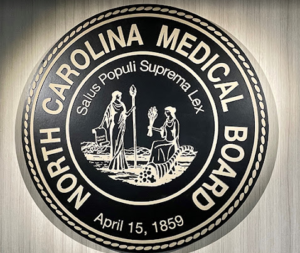
The North Carolina Medical Board has named Thomas W. Mansfield, JD, as its new Chief Executive Officer. Prior to accepting the position of CEO, Mansfield served as the organization’s Chief Legal Officer and has led the Legal Department since 2001. Mansfield was selected by the Board after an extensive executive search in accordance with its bylaws.
“Thom has deep knowledge and experience in medical regulation and is well positioned to make sure the North Carolina Medical Board continues to be a leader in the nation,” said Dr. Michaux Kilpatrick, NCMB President.
“It is an honor to be named as the Chief Executive of the oldest continuously operating medical board in the nation,” Mansfield said. “Medical regulation is a collaborative process, and I am committed to maintaining that collaboration for the benefit and protection of the people of North Carolina. I look forward to working with the Board members and staff to advance the mission and vision of the North Carolina Medical Board.”
Mansfield will begin his role on June 1, 2023. He will replace outgoing CEO David Henderson, JD, who announced his plans to retire in fall 2022.
In Memoriam: NCMS Lifetime Member Dr. James Jones, Sr.
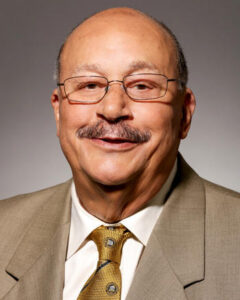
NCMS Lifetime member Dr. James Grady Jones Sr., "The Country Doctor," passed away on Tuesday, May 16. He was 89.
Jones was well known across the state as an influential family physician and professor of medicine at East Carolina University with a distinguished record of service to the state. He was particularly dedicated to efforts of recruiting and training physicians to deliver care to the poor and rural communities in eastern North Carolina.
Jones was instrumental in the development of the Family Medicine program at East Carolina University's new school of medicine and served as the founding chair of the Department of Family Medicine and Associate Dean for Rural Health for two decades.
Described as a "Giant in medicine in North Carolina," Jones was known for his famous saying, " The quality of your health care should NOT be determined by your ZIP Code."
Jones joined the North Carolina Medical Society in 1961.
Read the full obituary here.
2023 Child Health Report Card: NC Failing in Areas of Youth Mental Health
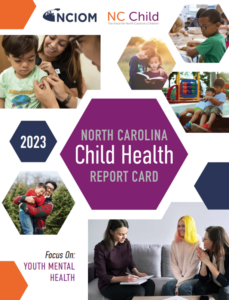
The NC Child and the NC Institute of Medicine recently released the 2023 Child Health Report Card.
The report shows North Carolina earned failing grades in several key areas: mental health, school health, housing and economic security, and birth outcomes, but made progress in preconception health and maternal health support, and substance use.
Below is a snapshot of the grades in the 2023 report:
A – Insurance Coverage
B – Environmental Health; Health Services Utilization and Immunization; Preconception and Maternal Health and Support;
C – Teen Births; Breastfeeding; Oral Health;
D – Education; Healthy Eating and Active Living; School Health; Child Abuse and Neglect; Tobacco, Alcohol, and Substance Use;
F – Birth Outcomes; Mental Health; School Health; Housing and Economic Security
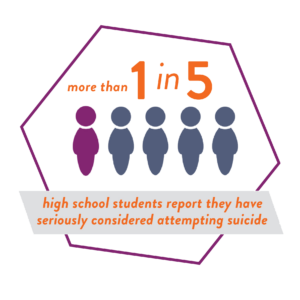
The authors of the report recommended several approaches to improving children’s mental health:
- Removing barriers to mental health care;
- Enhancing the availability of mental health care and crisis intervention in public schools, particularly in rural areas where specialty care is less available; and
- Making it harder for children and youth to get access to lethal means of self-harm (e.g., safe storage of firearms and prescription drugs).
View the 2023 Child Health Report Card here.
NCMS at Work: White Coat Day
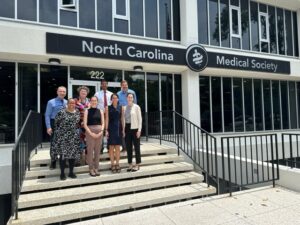
On May 23, NCMS teamed up with the North Carolina Rheumatology Association (NCRA) for a White Coat Day.
There were eight physicians, fellows, and residents in attendance, and they were able to meet with six North Carolina Representatives and Senators. We discussed the SAVE Act and prior authorization.
A big thank you to everyone who attended and advocated for the health of all North Carolinians!
Interested in hosting a White Coat Day? Contact Hannah Rice to get more information, [email protected].
Early Onset of Type 2 Diabetes Linked to Dementia Risk

New data findings suggest that people who develop type 2 diabetes before age 60 years are at threefold greater risk for dementia compared to those who don't develop diabetes. The data from the prospective Atherosclerosis Risk in Communities (ARIC) cohort also suggest that the previously identified increased risk for dementia among people with prediabetes appears to be entirely explained by the subset who go on to develop type 2 diabetes.
Of the 11,656 ARIC participants without diabetes at baseline in 1990-1992 (age 46-70 years), 20.0% had prediabetes (defined as A1c 5.7%-6.4% or 39-46 mmol/mol). During a median follow-up of 15.9 years, 3143 participants developed diabetes. The proportions of patients who developed diabetes were 44.6% among those with prediabetes at baseline versus 22.5% of those without.
Dementia developed in 2247 participants over a median follow-up of 24.7 years. The cumulative incidence of dementia was 23.9% among those who developed diabetes versus 20.5% among those who did not.
This new study is the first to examine the effect of diabetes in the relationship between prediabetes and dementia, as well as the age of diabetes onset on subsequent dementia.
Read the full article here.
Study: A Little Exercise Could Reap Big Benefits

A new study looking at the exercise habits of 577,909 adults in the US found that just 10 minutes of regular aerobic exercise (or "cardio") a week can substantially cut the risk of death from flu or pneumonia.
The relative risk of dying from flu or pneumonia dropped by 21 percent on average in this 10-150 weekly minutes group, compared with those who did no exercise at all, based on 20 years of data.
Logging 150-300 and 301-600 minutes per week of moderate-to-vigorous physical activity (MVPA) was associated with 41 percent and 50 percent reductions in risk, compared with no activity at all. However, no extra benefits were seen past 600 minutes per week, suggesting a plateauing effect.
The team also looked at muscle-strengthening activity (MSA): the recommended weekly amount for this is at least two sessions per week. Taken with MVPA, those who met both targets averaged a 48 percent reduction in risk of death from flu or pneumonia, compared with those who met neither target.
Read full article here.
Cigna Delays Implementation of New Modifier 25 Requirements

The North Carolina Medical Society, in collaboration with the Specialty Societies, the AMA, and other State Medical Associations, continues to advocate on your behalf to address unnecessary and administratively burdensome requirements that impact care access, delivery, and payment.
This week those advocacy efforts proved successful when Cigna announced it is delaying the implementation of the new modifier 25 requirements. The Cigna modifier 25 policy was updated with this information on 5/22/2023.
NCMS will continue working with Cigna to improve and inform policy updates and provider communications.
TBT: Celebrating 20 years of Leadership in Medicine! Here is Jennifer Parker Cote, MD's MEDTalk from 2020
This year the North Carolina Medical Society is celebrating 20 years of Leadership in Medicine!
Here is a Throwback Thursday to Dr. Jennifer Parker Cote's MEDTalk from 2020. Look for a new TBT every Thursday until the 2023 LEAD Conference, October 13-14.
https://youtu.be/awyhq5wX7_E
The 2023 LEAD conference registration is NOW OPEN. Click here for more information.
Please contact Erica Hall at NCMS to organize a class table of your own.
KIPL Alumni Survey - We Value Your Feedback

Alumni feedback plays a crucial role in shaping the value and effectiveness of the KIPL leadership programs. Your feedback provides us with a comprehensive understanding of each program's strengths and weaknesses, highlighting areas where adjustments or enhancements may be necessary to make sure these programs remain highly relevant and valuable to you.
We have just launched our 5-year needs assessment and would like to hear from you. If you haven’t already, please take a moment to complete this survey by May 31st.
NCMS PAC Thankful Thursday!
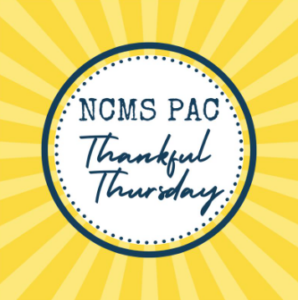
On this Thankful Thursday, we are recognizing some of our NCMS PAC Investors! Thank you for your continued support and investment to your patients and profession. Contact Hannah Rice ([email protected]) to learn more about how you can make a difference.
David M. Hatch, MD, MBA
Frank A. Hobart, MD, FACC
Jagadeesh R. Ganji, MD, FACC
Suneya G. Hogarty, DO
Tamara S. Housman, MD
Need Help? Physician Support Line Could Help

Physician Support Line is a national, free, and confidential support line made up of hundreds of volunteer psychiatrists joined together in the determined hope to provide peer support for physicians and medical students.
Physician Support Line was created with the mission of physicians supporting physicians as they navigate the many professional and personal intersections of their lives.
For many, discrimination, bigotry, and intolerance towards disadvantaged and unjustly marginalized groups is an undeniable detriment to every aspect of their mental well-being. Volunteer psychiatrists at Physician Support Line are from diverse backgrounds. Physician Support Line promises to provide emotional support and a safe space for physicians and medical students who are affected by discrimination, bigotry, and intolerance.
- Free, Confidential & Anonymous
- No appointment necessary
- Call for any issue, not just a crisis
- Open Monday to Friday (except federal holidays)
Contact the national support line at 1-888-409-0141 or visit them online here.
Duke Health Study Supports Benefit of Biologic Therapy for Nerve Pain

In a study using rodents, Duke Health researchers found that a spinal injection of the conditioned serum eased limb pain for far longer than typical analgesics. They also showed that this long-lasting pain relief results from a process outside the anti-inflammatory effects previously ascribed to autologous conditioned serum (ACS) -- an insight that could enhance and expand the therapy’s use.
ACS is produced from a person’s own blood, which is then processed in a centrifuge to remove the blood cells and concentrate the anti-inflammatory proteins. While not FDA approved, the therapy is offered at Duke as well as a handful of other centers in the United States, and for years has been extoled by athletes who undergo injections for cartilage injuries.
The Duke team used human, rat and mouse ACS fluid to test its effectiveness as a therapy for neuropathy. The serums were injected in both mice and rats after the animals had undergone a regimen of the chemotherapy drug paclitaxel, which is used to treat breast, ovarian and lung cancers. The most common side effect of paclitaxel is numbness and tingling in the hands and feet.
Not only did the therapy alleviate the animals’ nerve pain, but its effect lasted several weeks – well beyond the hours or days provided by normal pain medicines.
Read the full article here.
NCMS at Work! NCMS White Coat Day in Raleigh.
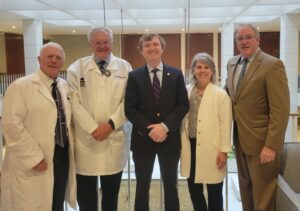
On April 27th, NCMS hosted a SAVE Act and Prior Authorization White Coat Day. There were 15 physicians, PAs, and residents in attendance, and they met with a variety of North Carolina Representatives and Senators.
One attendee was NCMS Board Member and Durham-Orange County Medical Society President, Ronnie Laney, MD, MPH. Here's what he had to say about the day:
"My recent experience with the NCMS White Coat Day continued my passion in the fight for our patients, who seem to continue to lose access to quality, affordable, and timely healthcare. This burden, because of the “wrong forces” leading the charge, has now become the plight of physicians. The problems, stress, poor outcomes continue to trickle downward to the very foundation of medicine: doctors and patients. This is why I got involved, and remain involved as a healthcare advocate. While I love what I do in that exam room, and the one-on-one relationship, I find passion in fighting for my patients, and colleagues, outside of the exam room. As a participant of White Coat Days recently in Raleigh, I immediately appreciated the fact that our very busy legislators took the time to meet with us, and listen to us. They continued to inform us of the power of our voices, no matter what side of the issue they supported. As advocates, we can do a lot to engage, and get the message out there, in front of our colleagues, our healthcare institutions, and our legislators. There continues to be a lot of work done behind the scenes, but there is a lot we can do in front of the camera as well."
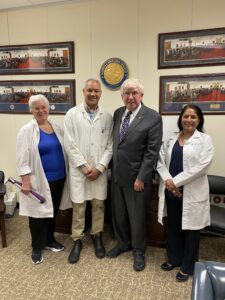
FirstHealth Launches Drone Pilot Program

FirstHealth of the Carolinas recently launched a pilot program for drone delivery of lab specimens from FirstHealth Convenient Care – Pinehurst and FirstHealth Internal Medicine to the Moore Regional Hospital laboratory.
It began May 12, 2023, making it the second health care system in the state to use drones for lab delivery. FirstHealth hopes to discover if drone delivery has the potential to improve turnaround time for patients’ test results, save time for hospital staff, and to assess how easily the delivery system can be implemented.
Read the full article here.
What impact do you think drones will have on health care? Leave your comments below.
Starting Soon: Changes to NCTracks Effective Dates

Effective July 30, 2023, clinicians completing applications for enrollment, re-enrollment, manage change request, and re-verification in NCTracks will no longer be able to choose an effective date that is more than 90 days in the future.
All future effective dates must be within 90 days of the application date. Clinicians will still be able to choose a past effective date that is within 365 days of the application date.
Additionally, a clinician's Licensure, Accreditation, Certification (LAC) may not expire within 30 days of the requested effective date. The LAC must be 30 days or more after the begin date requested on the application.
For additional information, contact NCTracks by phone at 800-688-6696 or by email at [email protected]
Urine Tests Could Soon Replace Cystoscopies to Detect Bladder Cancer

Thanks to the recent discovery of proteins that signal bladder cancer in early stages, screening for bladder cancer could soon be as easy as taking an at-home test.
University of Houston (UH) researchers, who analyzed more than 1,300 urine sample proteins from 2020 to 2023, identified biomarkers that could help doctors detect and diagnose the disease via a simple urine test instead of a cystoscopy—an invasive procedure in which a thin camera is inserted into a patient’s urethra.
The study found that one protein fragment, D-dimer, could play a role in cancer diagnosis or recurrence detection. D-dimer displayed the highest accuracy and sensitivity—at a respective 96% and 97%—of 21 urine proteins discriminating bladder cancer from urology clinic controls during the screening.
Read the full article here.
HHS Announces $1 Million Children and Youth Resilience Challenge

In response to the youth mental health crisis, the US Department of Health and Human Services announced a $1 million Children and Youth Resilience Challenge.
The challenge will fund community-led innovations and solutions that promote resilience in children and adolescents, birth to age 24, impacted by COVID-19 and other disasters.
The Challenge aims to:
- Award prizes to community-led solutions that promote resilience, advance mental health and well-being, and reduce the risk for negative mental health outcomes among children and youth
- Promote positive strategies and solutions that help children and youth – and their families and support systems – thrive
- Identify and elevate promising practices that promote culturally and linguistically responsive protective factors to improve resilience and advance mental health and well-being
- Support community-led innovation in promoting resilience among children, youth, and their families (in places such as community organizations, early childhood education settings, schools, primary care, and other children- and youth-serving or youth-led organizations)
- Increase understanding of gaps and opportunities to promote resilience, especially in underserved communities
- Catalyze action through public-private partnerships to broaden impact, address local needs, and promote sustainability
Proposals for the challenge are due on July 7 by 11:59 PM ET.
Get more information here.
FDA Panel Backs RSV Vaccine That Protects Newborns

Federal health advisers have backed Pfizer's first-of-its-kind RSV vaccine for pregnant women that guards their newborns against the respiratory virus.
In Pfizer’s international study of nearly 7,400 pregnant women, maternal vaccination proved 82% effective at preventing severe RSV during babies’ most vulnerable first three months of life. At age 6 months, it still was proving 69% protective against severe illness.
The idea it to give women a single injection late in pregnancy, between 24 weeks and 36 weeks, so they develop RSV-fighting antibodies that pass through the placenta — just like they pass protection against other bugs to their babies.
If the vaccine pans out, “many infants and their parents will breathe easier in the coming years,” said Dr. Jay Portnoy, a member of the Food and Drug Administration advisory panel from Children’s Mercy Hospital in Kansas City, Missouri.
Read the full article here.
NCMS Legislative Review: Mid-Session Legislative Report
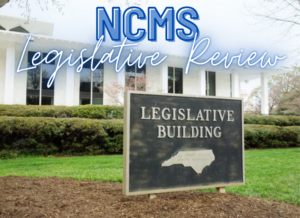
This week's Legislative Review features NCMS's Mid-Session Legislative Report.
The report gives a sampling of the bills NCMS staff have engaged on this session. Each is noted by support or opposition, and some bills we are still working with stakeholders to improve. The report also gives statistics on member engagement with the legislative process.
View the report here.
NCMS Has Retirement Solutions for You!
Are you ready to retire?
You can take advantage of all the power of the NCMS and plan for the future with our Retirement Solutions!
Caleb Sanderson talks about our new program to help YOU be ready for your next chapter.
Become a member of the North Carolina Medical Society and join thousands of your friends and colleagues.
Click here for more reasons why you should join today.
JOIN US at Joymongers Brewing in Greensboro!

Joymongers Brewing
576 N Eugene Street
Greensboro, NC 27401
Please RSVP to this FREE event, here!
Drinks are on us! Tacos Bros Food Truck will be on site!
If you have questions or are not able to register at the above link, please contact: Toni Hill at [email protected].
________________________________________
The North Carolina Medical Society has thousands of members who are looking forward to this summer! Come enjoy beverages, the food truck and meet NCMS members — who tell you how great it is to socialize and work together on issues physicians face every day!
BRING YOUR FRIENDS!

You worry about your patients, their families, your staff, and your practice.
The North Carolina Medical Society can make your days easier.
Let us worry about legislation like:
o Medicaid Expansion;
o Reproductive Health;
o Medical Cannabis;
o Team-Based Practice.
Come chat and hear how we are helping you, the profession of medicine, and patient care in NC.
________________________________________
Please RSVP to this FREE event, here!
________________________________________
Join NCMS today and help us make 2023 the year physician and PA voices are heard in Raleigh and beyond!
Foundation Friday! Thank You to These NCMS Foundation Donors.

Today, the NCMS Foundation recognizes donors who have joined us on the journey to help make health and well-being attainable for all North Carolinians. These individuals are contributing to make sure clinicians are where they are needed most and that clinician leaders are lighting the way.
Thank you for your continued support to help North Carolinians lead healthier lives.
Learn more about how YOU can make a difference too here.
Robert N. Agnello, DO
Marty A. Baker, MD
Timothy M. Beittel, MD
Victor W. Bustard, MD
Leland E. Garrett, Jr., MD, FACP
James E. Hill, Jr., PA-C, MEd
Linda W. Lawrence, MD
John R. Mangum, MD
Sandy Ward, III, MD
NC DPH: Xylazine (known on the street as Tranq) Abuse Growing. New Exposure Guidance Issued.
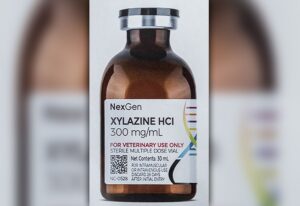
Xylazine abuse in the United States is a growing public health problem. The FDA-approved drug, which is legally administered by veterinarians as a sedative, muscle relaxant, or non-opioid analgesic for large animals. Known on the street as “tranq,” xylazine is increasingly mixed with opioids and can increase the risk of overdose. The Centers for Disease Control and Prevention (CDC) reports that xylazine use by humans may cause bradycardia, severe hypotension and ulcers.
In response to the threat of increasing exposure to xylazine, the NC Division of Public Health (NC DPH) has issued an alert with guidance for North Carolina health care professionals (PDF). The notice includes instructions on reporting adverse events and patient education information. Please share this information with colleagues.
Minimally Invasive Skull Implant Could Treat Epilepsy and Other Neurological Conditions
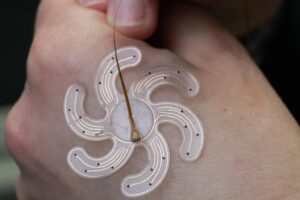
Researchers at the Ecole Polytechnique Fédérale de Lausanne in Switzerland have developed a flexible, flowerlike device that can be inserted through a tiny hole in the skull and attached to the brain to help treat conditions like epilepsy.
“Minimally invasive neurotechnologies are essential approaches to offer efficient, patient-tailored therapies,” Stephanie Lacour, director of the EPFL Center for Neuroprosthetics, said in a news release. “We needed to design a miniaturized electrode array capable of folding, passing through a small hole in the skull and then deploying in a flat surface resting over the cortex.”
The technology combines soft bioelectronics and soft robotics, creating an extremely thin device with six spiral-shaped arms. The arms start off inverted inside a cylindrical tube and deploy once the array has reached its target, allowing it to cover a 4 cm surface area — double the 2 cm diameter of the hole it’s passed through. It rests within a space only about 1 mm in width between the skull and the brain.
Read the full article here.
Duke Health Leads New Universal Flu Vaccine Trial
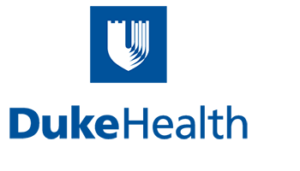
Duke Health is leading its first clinical trial under a large federal initiative to develop a new-generation flu vaccine.
The phase 1 clinical trial, which launched last month, is testing the safety of a vaccine candidate devised under the Collaborative Influenza Vaccine Innovation Centers (CIVICs) program. CIVICs is a multi-million-dollar investment by the National Institute of Allergy and Infectious Diseases (NIAID), part of the National Institutes of Health, to develop a modern vaccine that provides longer and broader protection against both seasonal and pandemic influenza viruses.
Read the full article here.
NCMS PAC Thankful Thursday!

On this Thankful Thursday, we are recognizing some of our NCMS PAC Investors! Thank you for your continued support and investment to your patients and profession. Contact Hannah Rice ([email protected]) to learn more about how you can make a difference.
Amanda C. Trimpey, MD, MPH, FACOEM
David K. Mertz, MD, FAAP
James E. Hill, Jr., PA-C, MEd
Kevin B. Shute, MD
Rebecca Y. Weinshilboum, DO
Valerie L. Jewells, DO
TBT: Celebrating 20 years of Leadership in Medicine! Here is Kristen Dorsey, MD's MEDTalk from 2018
This year the North Carolina Medical Society is celebrating 20 years of Leadership in Medicine!
Here is a Throwback Thursday to Dr. Kristen Dorsey's MEDTalk from 2018. Look for a new TBT every Thursday until the 2023 LEAD Conference, October 13-14.
https://youtu.be/m553kTKyAW0
The 2023 LEAD conference registration is NOW OPEN. Click here for more information.
Please contact Erica Hall at NCMS to organize a class table of your own.
CDC Update on Mpox: Warm Weather, Gatherings Could Lead to Resurgence

The Center for Disease Control and Prevention (CDC) recently released a Health Alert Network (HAN) Health Update meant to inform clinicians and public health agencies about the potential for new clusters or outbreaks of mpox cases and to provide resources on clinical evaluation, treatment, vaccination, and testing.
Mpox virus can be spread person-to-person through infected body fluids (including saliva and lesion fluid), items that have been in contact with infected fluids or lesion crusts, and respiratory droplets. The incubation period is usually 7−14 days but can range from 5−21 days. People with mpox are infectious from the start of symptoms (before the rash forms) until the lesions heal and new skin forms underneath scabs and the scabs have all fallen off.
Warmer weather and individuals gathering for events could lead to a resurgence of mpox. The CDC and local partners are investigating a cluster of mpox cases in the Chicago area with 12 confirmed and one probable case.
Read the full Health Update here.
Other links of interest:
NCMS Hosts First Advocacy Summit
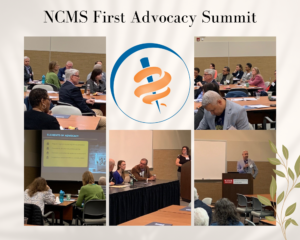
On April 29th, NCMS hosted an Advocacy Summit for physicians, physician assistants and other medical professionals across the state. We had thirty members in attendance and had a great line up of speakers and sessions.
One attendee was NCMS Board Member and Durham-Orange County Medical Society President, Ronnie Laney, MD, MPH. Here's what he had to say about the day:
"My recent experience with the NCMS Advocacy Summit continued my passion in the fight for our patients, who seem to continue to lose access to quality, affordable, and timely healthcare. The problems, stress, poor outcomes continue to trickle downward to the very foundation of medicine: doctors and patients. This is why I got involved, and remain involved as a healthcare advocate. The NCMS Advocacy Summit had great energy and passion with a collaboration of advocates from different aspects. The energy was infectious as we discussed the motivations for engaging, staying engaged, and getting others to engage. As advocates, we can do a lot to engage, and get the message out there, in front of our colleagues, our healthcare institutions, and our legislators."
Due to the great feedback and turnout from the summit, NCMS plans to host this again in 2024! Want more information about how to get involved in NCMS advocacy efforts? Reach out to Hannah Rice at [email protected].
NCMS CEO Chip Baggett Makes Business NC's Power List Second Year in a Row!
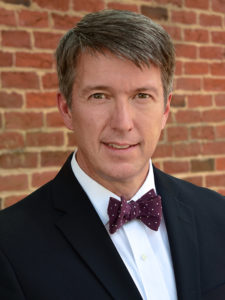
Congratulations to our very own Chip Baggett for making Business North Carolina’s 2023 Power List in the Health Care category. This is Chip's second year receiving this well-deserved honor!
Business NC's goal is to identify the people who lead North Carolina, based on interviews with business community officials, research and reader suggestions. Their emphasis is on those who have made a particularly noteworthy impact in the last year.
Be sure to send Chip your congratulations in the comments!
Other links of interest:
Business North Carolina's 2022 Power List
Relief Could Be Possible for Your Patients Suffering with Hot flashes and Night Sweats

The Food and Drug Administration (FDA) recently approved a new nonhormonal medication to treat the hot flashes and night sweats often experienced with menopause.
Veozah, or fezolinetant, made by Astellas Pharma, is the first approved neurokinin 3 (NK3) agonist. It blocks receptors in the brain that play a role in the regulation of body temperature.
Women at higher risk of stroke, heart attacks or some kinds of cancer are sometimes advised against using hormone replacement therapies because they increase the risk of blood clots and cancers. Veozah is an alternative to traditional hormone replacement therapies.
In clinical trials that included more than 3,000 women in the US and Canada, Veozah reduced the number of hot flashes women experienced each week significantly more than a placebo. The studies followed women who took the drug for a year.
Read the full article here.
Grant Opportunity for Maternal Health Research

The purpose of the Maternal Health Research Collaborative for Minority-Serving Institutions (MSIs) is to establish a multi-institutional research network that is comprised of and supports minority-serving institutions (MSIs) to build their capacity to conduct research addressing disparities in maternal mortality, severe maternal morbidity, and maternal health outcomes and to find community-based solutions to address these disparities and advance health equity.
Applications must be submitted by to June 12, 2023.
To learn more and apply, click here.
Take the Pledge to Help Stop Diabetes in its Tracks!
DIABETESFREENC is a joint initiative of the NCMS Foundation and the American Medical Association (AMA) aimed to stop the spread of diabetes in NC.
The National Diabetes Prevention Program (DPP) is a lifestyle change program that has free or low-cost options for patients, regardless of their insurance provider and you can refer using any of these convenient platforms: Our Community Health Initiative (OCHI), NC CARE 360 and the DPP Navigator.
Your pledge demonstrates your willingness to support diabetes prevention in NC! Pledge TODAY!
Webinar on New Recommendations for Hepatitis B Screening
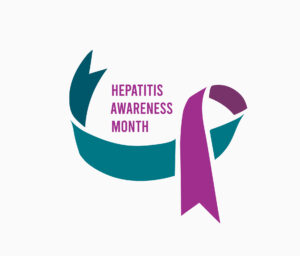
On Tuesday, May 16, the Bureau of Primary Health Care (BPHC) is hosting a webinar to brief clinicians and other health care providers about the release of new recommendations for hepatitis B screening and testing.
During the call, Dr. Erin Conners, CDC’s viral hepatitis epidemiologist, will discuss how the updated recommendations differ from the 2008 recommendations, explain the rationale for the changes and why the updated recommendations are beneficial. Dr. Conners will also share key messages.
Participants will have an opportunity to ask questions about the science supporting these changes and the expected impact of these recommendations.
Need more information, Chepkorir Maritim, Nurse Consultant, at [email protected]
Register for the webinar here.
Event details:
Tuesday, May 16
1:00-2:00 p.m. ET
NCMS Loves Early LEAD Adopters! Now is Your Time to Let Your Voice be Heard!
https://youtu.be/6guI0x2U440
Momentum is building for the 2023 LEAD Conference ...
Many thanks to Edward Jones, another confirmed sponsor at the 2023 LEAD Conference!
Be sure to visit Edward Jones at their exhibit booth at LEAD!
Want to attend? Find out how here.
Find out more about sponsorship opportunities here.
... and your company needs to be there!

Physicians Needed for Three NCMB Seats

Applicants are needed for three physician seats on the North Carolina Medical Board for terms beginning November 1, 2023.
All positions must be filled by the process set down in statute (N.C. Gen. Stat. 90-2 and 90-3), which requires interested parties to apply via the Review Panel for the North Carolina Medical Board. The Review Panel is an independent body that nominates candidates for consideration by Governor Roy Cooper. By law, the Review Panel must nominate two candidates for each open seat.
Additionally, one of the open seats must be filled by a physician who is a member of the Old North State Medical Society. Applications from ONSMS members are urgently needed to fulfill the statutory Board composition criteria.
Applications will be accepted online and are due no later than Thursday, June 29 at 4:45 p.m.
The Review Panel will consider only physicians (MDs or DOs) who hold active, unrestricted NC medical licenses. Applicants must be actively practicing clinical medicine at least part time and must have no history of disciplinary action within the past five years.
For more information or to submit an application, visit this website.
FDA Updates Blood Donations for Gay and Bisexual Men

A recent decision by the Food and Drug Administration (FDA) eliminates restrictions that have previously prohibited many blood donations by gay and bisexual men.
In a press release, the FDA said it will recommend a series of "individual risk-based questions" that will be the same for every blood donor, regardless of their sexual orientation, gender or sex. Those who have had anal sex with a new sexual partner, or more than one sexual partner, within the last three months would be asked to wait to donate blood.
Read the full article here.






